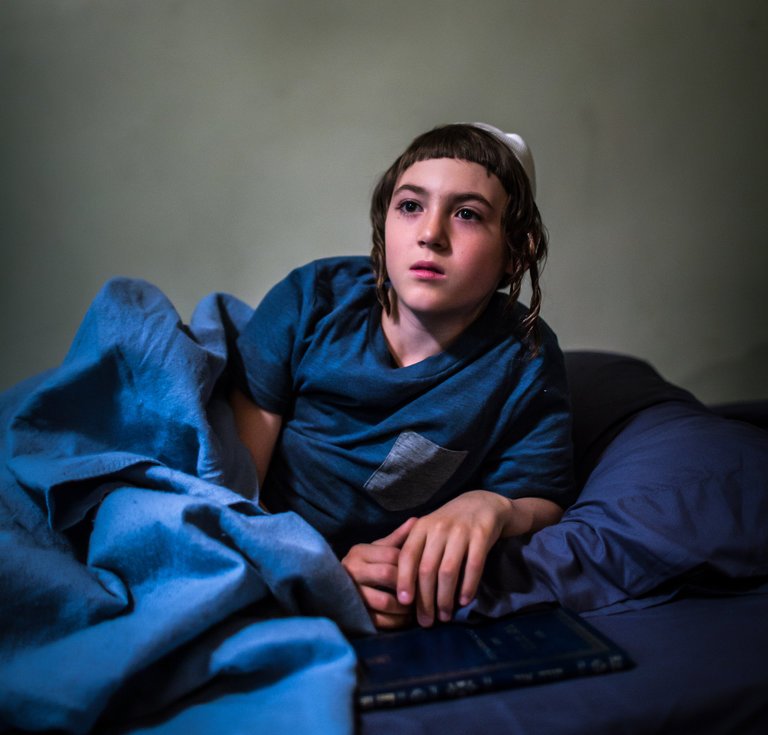DVD: Beach Rats
Limbo over an uneasy Brooklyn summer, from an American indie director to watch
Beach Rats is a film that has “indie” etched in its bones. The second feature from Brooklyn-born Eliza Hittman, it was made with support from New York's independent outfit Cinereach, and went through development at the Sundance Labs. Appropriately, it took that festival's Best Feature Director award last year.
It’s strong on the kind of atmosphere that might easily float into nowhere, but is backed up by a striking performance from British newcomer Harris Dickinson that holds the attention in the subtlest ways. Dickinson plays 19-year-old Frankie, who’s on the cusp of adulthood and apparently coasting through an idle summer in the company of friends. An encounter at the Coney Island fireworks introduces him to Simone (Madeline Weinstein, pictured below, with Dickinson), and initiates a tentative, on-off interaction that also never quite gets anywhere.
But underneath such surfaces the young man's world is considerably darker, reflected in the fact that his father is in the last throes of cancer; he’s dying at home, grief and tension hanging in the air. And Frankie is in the course of discovering his identity, tentatively exploring gay contact websites. But Hittman resists driving Beach Rats in any more standard coming-out narrative direction: rather her concern is with Frankie’s state of increasingly uneasy limbo, emotions suppressed until they come close to crisis in late overlaps with external circumstances. 
Hittman talks, in one of the two short interview extracts that come as extras on this release, of her attempt to get into the mind of a teenager pressured by expectations and circumstances (her first film, It Felt Like Love, was a story of female adolescence, so this is both new and familiar territory for her). Frankie’s reticence and uncertainty – “I don’t really know what I like” is a phrase he repeats through the film – means that the changes and charges of emotion are shown in the smallest of gestures.
Dickinson’s striking features are richly expressive of such nuances, and they are beautifully caught by French cinematographer Hélène Louvart’s subtle textures, which also capture the languid summertime atmosphere of the remoter edges of Brooklyn (it’s the director's home territory, very different from the trendier neighbourhoods of the borough we are more used to on screen). The film seems somehow removed from time (no mobile phones), and Hittman creates the fabric of its world beautifully. She draws absolutely natural performances from a mainly non-professional cast – Frankie’s three beach-side companions, as well as his younger sister (Nicole Flyus) – and a deeply insightful role from Kate Hodge as his mother.
It’s a world in which no one intends wrong, but things go wrong. Frankie himself acutely realises his own shortcomings, but the director isn’t interested in judging him. No doubt he will one day reach resolution of some sort, but for now Hittman is honest enough not to suggest answers. Expect to hear much more both of her, and of her star.
Overleaf: watch the trailer for Beach Rats

 Filmed in Borough Park, an ultra-orthodox Jewish neighbourhood in Brooklyn, it’s to Weinstein and his producer Danny Finkleman’s enormous credit that they managed to win enough trust from the local Hasidic community to be allowed extensive access to the streets, restaurants and apartments of this closed world. Ultra-Orthodox leaders don’t allow devout followers to go to the cinema or have TV or the Internet at home; there is a great distrust of all modern media. Cast entirely from non-actors, the script was developed from Menashe Lustig’s own life story – he really is a widowed grocer with a young son – although it leaves out his sideline as a
Filmed in Borough Park, an ultra-orthodox Jewish neighbourhood in Brooklyn, it’s to Weinstein and his producer Danny Finkleman’s enormous credit that they managed to win enough trust from the local Hasidic community to be allowed extensive access to the streets, restaurants and apartments of this closed world. Ultra-Orthodox leaders don’t allow devout followers to go to the cinema or have TV or the Internet at home; there is a great distrust of all modern media. Cast entirely from non-actors, the script was developed from Menashe Lustig’s own life story – he really is a widowed grocer with a young son – although it leaves out his sideline as a